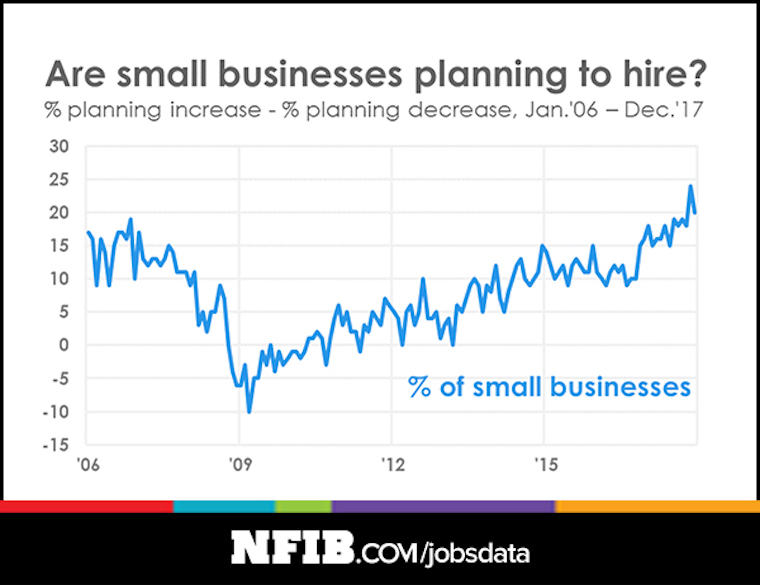A shortage of qualified workers reached a record high in December, and the number of small business owners who made plans to raise compensation was 54 percent, the second highest in history, according to the monthly National Federation of Independent Business (NFIB) Jobs Report, released on Thursday (1.4.2018).
A growing worker shortage is the flip side of the record level of optimism among small business owners we reported last month. “Small business owners are converting their optimism into action, and a majority cannot find enough workers to meet higher customer demand,” said NFIB President and CEO Juanita Duggan.

Source: NFIB
“Finding qualified workers is now the second biggest concern for small business owners,” said NFIB Chief Economist Bill Dunkelberg. “Taxes occupied the top spot all of last year, but that may drop as the recently enacted tax reform law takes effect. The worker shortage could very well become the number-one problem for small businesses.”
54% | Percentage of small business owners who reported finding few or no qualified workers. That’s a 10-point jump from the previous month and an all-time record.
53% | The previous record high percentage of small business owners who reported finding few or no qualified workers was September 1999.
23% | The number of firms planning to raise compensation jumped six points to 23%, the second highest reading in history
27% | Previous record high of firms planning to raise compensation set in December 1989
“Small businesses are having to raise compensation to attract and keep qualified employees,” said Dunkelberg. “That means their costs will increase. It remains to be seen whether that will lead to higher prices.”
The labor shortage is a problem for small business owners, but it is also a strong signal that the economy is gaining momentum. “Finding qualified workers is a challenge that small business owners will be working through over the next few months. The positive is that owners of small businesses are more confident in the economy. Those work at small businesses will be the beneficiaries,” said Duggan.
istock
